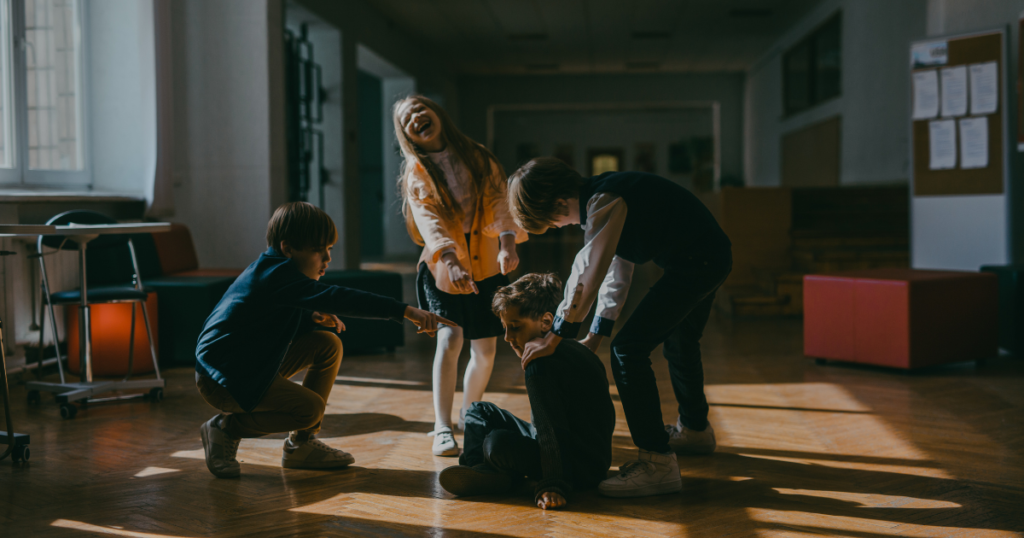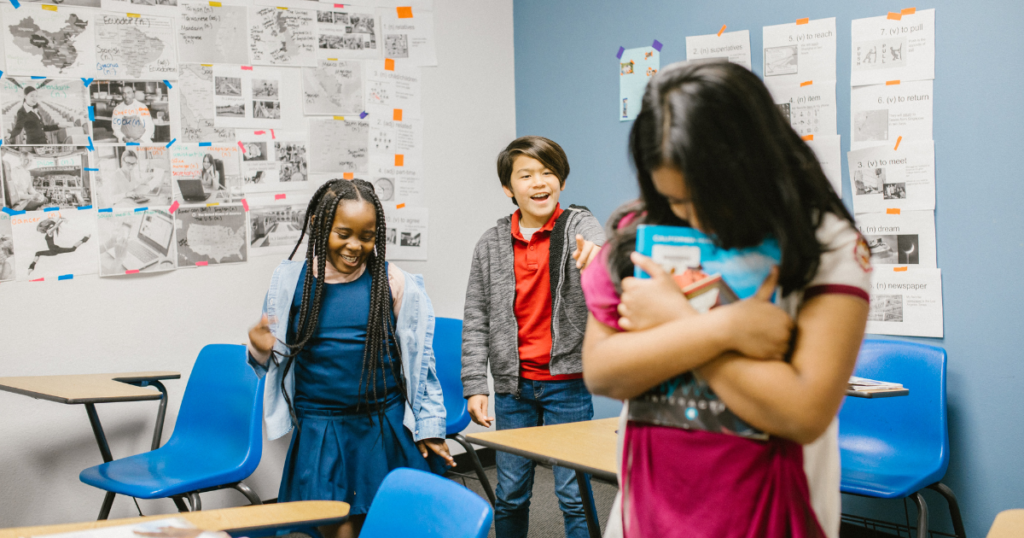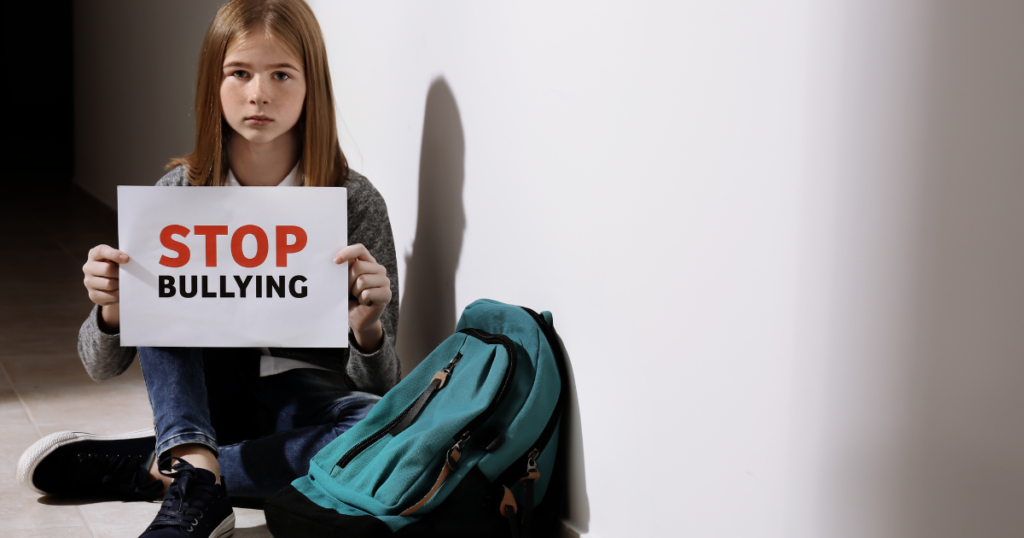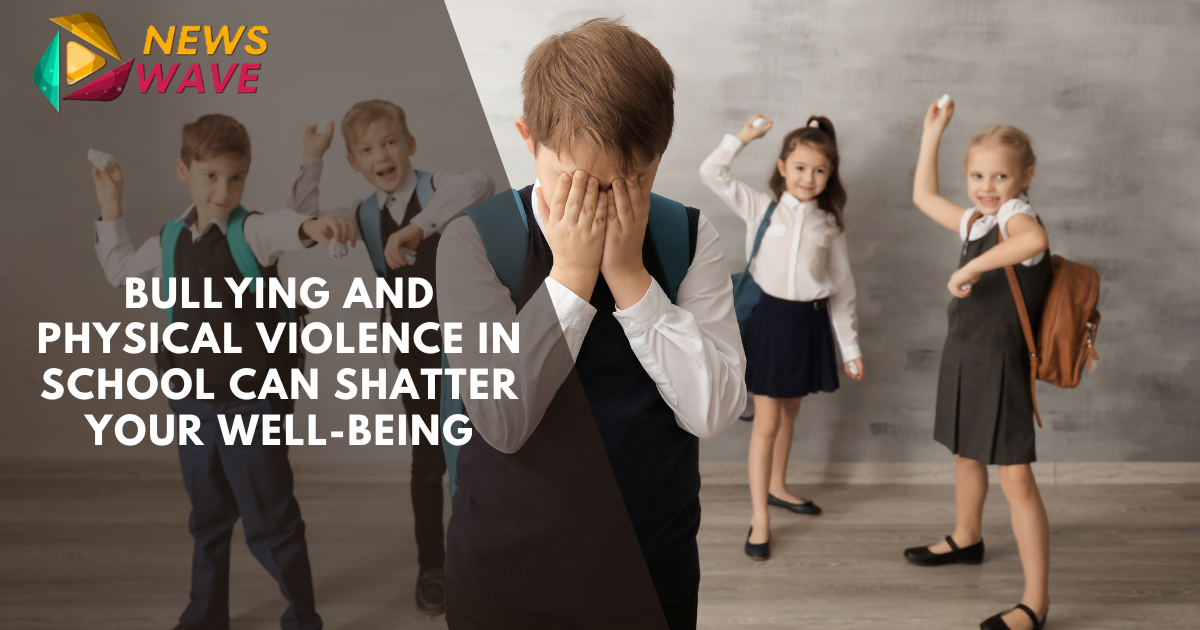In the peaceful garden of teenage years, where young minds should flourish, there’s a big problem: bullying and physical violence at school. These two are the prickly bushes in the garden that can stop kids from growing and being happy. They don’t just steal a child’s innocence but also harm their feelings and bodies.
Schools should be a safe haven, where kids should have a blast learning new stuff, making awesome friends, and growing up. But for too many students, it can become a scary place where they have to deal with bullying and physical violence in school.
In this blog post, we’re going to talk about how physical violence and school bullying affect your mental health as well as physical health. Come along as we explore the heart of the issue, where we begin the fight for a healthier and happier youth.
The Invisible Battlefield
You might not see it right away, but bullying and physical violence, as well as exposure to domestic violence, cause really deep wounds. Think of a young person’s mind as a delicate glass sculpture – it can break easily when it faces meanness and violence. When the child becomes the target of bullying and physical violence, the mental effects can last longer than physical pain. These effects of school bullying can show up in many different ways from anxiety and depression to post-traumatic stress disorder.
Mental Health: The Silent Sufferer

-
Anxiety: The Relentless Shadow
Imagine carrying a heavy backpack full of worry, fear, and unease every single day you head to school. That’s what life can be like for someone who’s been bullied or hurt by violence. Anxiety sticks around as a shadow, making your tummy flutter, thoughts that won’t calm down, and a constant sense of fear.
This non-stop worrying can turn the school into a tough place. Kids might struggle to concentrate on their lessons, form friendships, or have fun.
-
Depression: The Gray Cloud
Bullying at school and physical violence can seem like a big, heavy load on a student’s spirit. They could start feeling sad, like they’ve lost hope, and as if they’re all alone. Life can lose its brightness and become a world of gray, where everything seems boring.
Depression can be a bit like an endless raincloud, that won’t let any sunshine through. It’s as if there is a never-ending storm in their mind, making it hard to find joy in everyday things.
-
Low Self-esteem: The Shattered Reflection
Bullying and violence can shatter a person’s self-esteem just like a mirror shatters into pieces. When hurtful words and actions target someone, they might start believing those negative things about themselves. This can foster a deep feeling of not being enough.
This low self-esteem can impact every aspect of life, from making friends to doing well in school. It’s as if they’re burdened with a heavy backpack filled with self-doubts, making every step feel harder.
-
Feeling alone: The Lonely Island
Dealing with bullying can make some individuals feel alone. They might start keeping their distance from others in an attempt to escape from the pain and shame, and this, regrettably, can create an endless cycle of loneliness.
This loneliness can weigh them down, and as they avoid social interaction, it becomes even more difficult to take part in everyday activities and cherish the small, joyful moments in life.
The Physical burden

-
Sleep Troubles
Stress can mess up sleep, causing restless nights and tired mornings. When the mind is heavy with the burden of bullying and violence, finding peace in sleep can be quite hard. The anxiety and emotional pains caused by these experiences can haunt a person throughout the night, making it hard to unwind and fall into a peaceful sleep.
Dealing with these sleep issues is vital not just for student’s well-being but also for their academic performance and overall health.
-
Stomachaches
When the mind is continually attacked by bullying and violence, it can trigger a physical response, often in the form of stomach issues. The stress and anxiety caused by these bad experiences can upset the delicate balance of the digestive system, resulting in discomfort and pain, and making students skip school and social activities.
The discomfort and pain might also affect student’s eating habits. Some eat more to cope with their emotions, while others eat less, causing unhealthy weight changes.
-
Headaches and Pain
When students experience the constant chaos of bullying and violence, their bodies might react with physical discomfort. The tension and anxiety from these experiences can cause headaches, ranging from mild to severe, as well as muscle pain in various parts of the body.
Ongoing headaches and musical pain can seriously affect a student’s daily life. They make it hard to focus on schoolwork, and engage in activities, and can make them feel even more alone.
-
Weakened Immune System
When bullying and violence affect a student’s mental and emotional well-being, it can also have a big impact on their physical health. Long-lasting stress triggers the release of stress hormones, which over time, can weaken the immune system’s ability to safeguard against viruses and bacteria.
As a result, students who deal with ongoing stress are at higher risk of getting sick and find it tougher to get better. Getting sick often can cause students to miss school days and fall behind in their work, making the stress and anxiety even worse.
Breaking the Chains of Bullying and Physical Violence in School

Let’s join hands as a caring community to break the chains of bullying and violence in school. Together we can create a protective shield to safeguard our students’ physical and mental health. Here are some steps we can take:
- Education: Schools should plant the seed of empathy, kindness, and respect in students, growing an environment where bullying and violence have no place. Promoting these values is vital in crafting a secure and welcoming school atmosphere where students feel embraced, and find support and freedom from the shadows of bullying and violence.
- Support Systems: Victims need to know they are not alone. Counseling services offer the victim a professional outlet to heal the emotional scars left by bullying and violence. Support groups, on the other hand, enable victims to link with those who’ve faced similar challenges, creating a sense of community and empathy that’s priceless for their healing journey.
- Open Conversations: Parents and guardians, let’s be like open books for our kids, welcoming their feelings and stories without judgment. When parents do this, it’s like sending a powerful message, that they are always here to listen and have their kid’s back, strengthening their emotional health.
- Reporting Mechanisms: Schools should create a system where teachers, staff, and students can report incidents of bullying and violence. However, they must ensure that reports are taken seriously and addressed quickly. This provides a safe space for the victims to step forward without being afraid of any consequences.
Final words
In the tale of school life, where every young mind should be a thriving, vibrant character, there are often dark shadows lurking in the background. These shadows appear as bullying and physical violence and they have the power to cast a dark spell over a young person’s health. These experiences leave lasting marks, turning their vibrant youth into shades of gray.
But remember, in every story, there are heroes, and in this one, it’s you – the students, parents, teachers, and the entire community. It’s time to stand together and craft a story of accomplishment, strength, and boundless opportunities.


